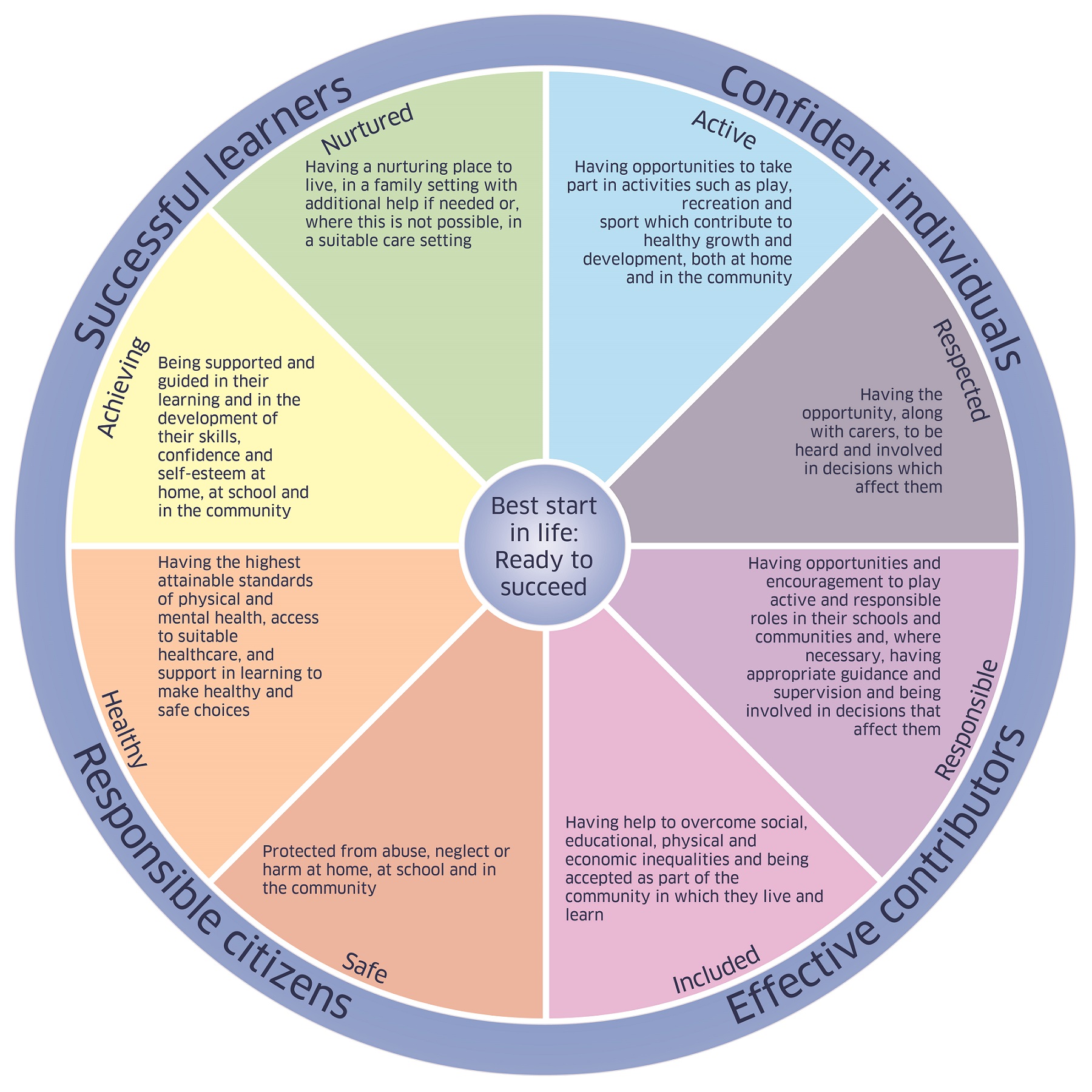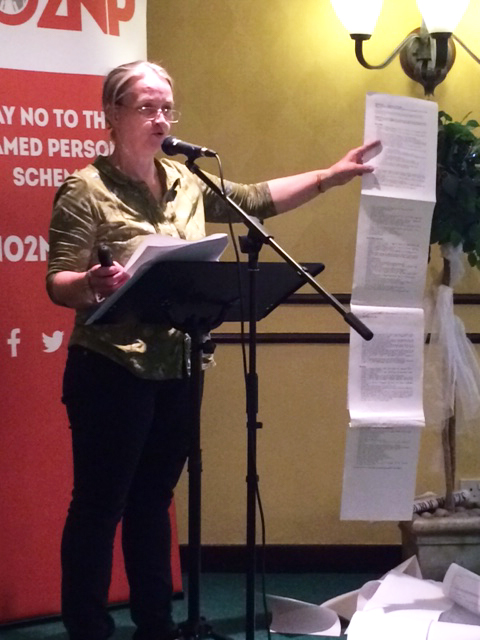Blog
Keeping you up to date on the progress of the Named Person scheme and the NO2NP campaign.
NO2NP ROADSHOW: PETERHEAD
Posted 8 years agoThere was a great turnout at the Waterside Hotel, Peterhead on Monday night, as the NO2NP team rolled up to ‘The Blue Toon’ for their latest roadshow event.
We were delighted to welcome back a senior academic to share his own troubling experience of the highly invasive Named Person scheme.
The speaker, who wishes to remain anonymous, has undertaken academic research on the workings of the former USSR and he said it was “petrifying” to see the similarities between that and the Named Person scheme.
He explained how at a review meeting for his youngest child, the health visitor had mentioned in passing that they had a note that his son was depressed. She said this “must have been a mistake” in the “family record”, because the youngster was really happy. When he pressed her on what this family record was, he was told there were “daily notes”, which he found odd, as he had only met this health visitor twice. He discovered that the document was used to gather hearsay.
It took some persistence before he was finally allowed to see the record and to his alarm, he found it was a heavily redacted 60-page document. He was told the parts that had been scored out were “3rd party information”, i.e. people’s opinions about his family situation.
The authorities were clearly trying to make a case to intervene in his family with such routine issues as a blister on his child’s upper lip, nasal discharge and a nappy rash. The record will remain until his boys are 26.
“It’s very worrisome that interested and engaged parents have no way of finding out what’s happening to their families in terms of surveillance”.
He believes many health visitors don’t always want to be Named Persons, but have to in order to protect themselves and their jobs. He said he has huge respect for health professionals, but feels their time would be better spent on other things.
Despite all this, in an upbeat conclusion he said he has “great hopes” for the Supreme Court ruling and for local people standing up against this legislation.
Lesley Scott from TYMES Trust then took everyone through some of the tools used by practitioners for gathering information, including:
- Parental capacity to provide well-being assessment: a pre-birth assessment tool used by midwives to record the prospective parents’ capacity to provide their unborn child’s right to be safe, healthy, achieving, nurtured, active, respected, responsible and included.
- On the trail with the Wellbeing Snail: a board game for primary-aged children to teach them what the state’s concept of ‘good wellbeing’ looks like. The cards include such statements as “You told the teacher that you were sad because your friend was unkind to you, Go forward 2 spaces” and “You didn’t join the new after school fencing club, Go back 2 spaces.”
Lesley went on to highlight the uncomfortable fact that a wellbeing worry can be raised by anyone. Highland Council, who have run a pilot of the Named Person since 2007, illustrate this point by saying: “Concerns may be identified by the child or their family, by someone in the community, by the Named Person, or by a practitioner or clinician in ANY organisation, including adult focussed services and the police.”
Once that concern is raised the Named Person has a legal duty to then act to assess that child’s wellbeing needs.
She said there were more than 200 “risk indicators” which practitioners need to keep in mind, but they are told that “whilst comprehensive they do not seek to be exhaustive”. They include:
- Being under 5 years old
- Illness within the extended family
- Experience of bereavement, e.g. a pet
- Parental resistance or limited engagement
- The parent having a different perception of the problem
Lesley finished with the Grampian Practitioner’s Guide to Information Sharing, Confidentiality and Consent to Support Children and Young People’s Wellbeing’.
This states that the sharing of confidential information is lawful where disclosure is in the public interest; it then defines public interest as ‘protecting wellbeing’.
It also emphasises to practitioners that “Data protection does not prevent the sharing of information” and that they should “Record, record, record!” Is it any wonder that runny noses need 60-odd pages of ‘family record’ write-up?
Nigel Kenny of The Christian Institute then gave an update on the judicial review at the Supreme Court, before suggesting some practical ways in which people could get involved with the campaign.
At the end a record number of people signed up to be volunteers! Some of them will be in Peterhead’s town centre tomorrow for our latest Action Day, so if you’re around do come and speak to them.
Named Person law undermines parents by focusing on trivia
Posted 8 years agoGuest blog by Dr Stuart Waiton
Defenders of the Named Person law often claim (1) it doesn’t undermine parents and (2) it will help stop cases of serious child abuse or neglect.
But the Policy Memorandum on the new law explained that the role of the Named Person is, ‘based on the idea that information on less critical concerns about a child’s wellbeing must be shared if a full picture of their wellbeing is to be put together and if action is to be taken to prevent these concerns developing into more serious issues’.
The Named Person and all professionals dealing with children and families are to be educated about the importance of early intervention. Early intervention necessarily means professionals share data and intervene in family affairs earlier than they used to. This necessitates a Minority Report type approach where relatively minor incidents are treated as ‘risks indicators’.
In the National Risk Framework document, it is explained that the ‘Named Persons, Lead Professionals and others then need to project the future probability or likelihood of harm and to determine if this harm is significant in nature or not. Projection of probable risk of harm significantly also means that there is a potential for error in terms of what we think may occur. This is no small task indeed’.
The incredibly broad category (if it can be called a category) being used to encourage data sharing is ‘wellbeing concerns’, a therapeutic and woolly terms that is being taught to professionals helped by the 308 wellbeing indicator list and the 221 risk assessment indicators. Health visitors are also being taught that they must check family finances, check for domestic abuse and to take a proactive ‘health creating’ approach with the ‘emphasis on wider family health’.
Here health no longer relates to the health of the child or infant as we would previously have understood it, but to a much wider idea of the ‘healthy’ family and the ‘healthy’ parent.
Some people, particularly it seems, family professionals and modern politicians, appear to think that ‘bad parenting’ is the cause and solution to almost all of society’s problems. They also appear to believe that parents are incompetent. The social mobility tsar, Alan Milburn thinks that four out of ten children are missing out on good parenting, for example, and David Cameron now tells us that all parents should aspire to have parenting classes.
Meanwhile, what a ‘child at risk’ means continues to expand to include more and more aspects of life that would previously have been seen as relatively unproblematic and certainly not something that should be the concern of professionals.
Professionals should be encouraged to use their judgement and experience to assess if a child is at serious risk of harm. Where this is not the case we should not be encouraging them to become risk managers of all children or wellbeing monitors of all aspects of their lives.
Stuart Waiton
Senior Lecturer in Sociology and Criminology, Abertay University.
Does anyone actually know what ‘wellbeing’ means?
Posted 8 years ago
The word ‘wellbeing’ is a nice word.
Nice.
But confusing.
You’ll hear it mentioned nearly every time someone talks about the Named Person scheme. That’s because ‘improving a child’s wellbeing’ is THE central concept of the Government’s plan.
Politicians have decided this is a foolproof master stroke of conceptual simplicity. They love it. Yet parents across Scotland are raising serious concerns.
Here are some reasons why the word ‘wellbeing’ is causing a stir.
• Wellbeing means happiness
From August 2016, every child in Scotland will be appointed a Named Person to oversee their wellbeing.
The trouble is, a Government-funded leaflet says “wellbeing is another word for how happy you are”. Elsewhere the Scottish Government say it can mean “a wider vision of happiness”. How can the state monitor the happiness of every child?
• Inappropriate scrutiny
The same guide says a Named Person will check that a child is respected, which includes being given a say in what they watch on TV and how their room is decorated.
• Subjective
Wellbeing is highly subjective. The Scottish Parent Teacher Council warned that there could be potential disagreement between Named Persons and parents over what’s best for a child.
• Confusing indicators
Graphics and charts have been produced to help flesh out the details:

– A so-called ‘National Practice Model’ has been drawn up using a series of diagrams called the ‘Wellbeing Wheel’, the ‘My World Triangle’ and the ‘Resilience Matrix’.
– The ‘Wellbeing Wheel’ is to be used to examine eight ‘key’ aspects of every child’s life, known as the ‘SHANARRI‘ indicators: Safe, Healthy, Achieving, Nurtured, Active, Respected, Responsible, and Included.
– In total, teachers and health visitors will need a working knowledge of 221 risk indicators and 308 wellbeing indicators.
• Undefinable
When Stewart Maxwell MSP was asked to define wellbeing, he berated his interrogator for asking such a “ridiculous” question – but he still wasn’t able to answer it.
• A stranger’s discretion
And yet, Named Persons will be able to act on wellbeing concerns as they consider best. This means state officials will have the power to speak to your child, including about very personal issues, and provide information or advice – all without requiring your consent.
• Non-concerns
In fact the entire Named Person scheme is predicated upon the understanding that information on ‘less critical concerns’ about a child’s wellbeing must be shared.
• Intrusive monitoring
One piece of Government guidance even says a Named Person has “responsibility for overall monitoring of the child’s wellbeing and outcomes”. Surely this is the role of a parent?
• Lowering the data sharing threshold
Let’s not forget that the current threshold for information sharing is “risk of significant harm”. Yet the Information Commissioner’s Office says the Named Person law is “lowering that trigger down to wellbeing”.
The idea that a scheme so controversial should hinge on a word so vague is bizarre and alarming in equal measure. No wonder so many parents are saying ‘No’ to Named Persons.







